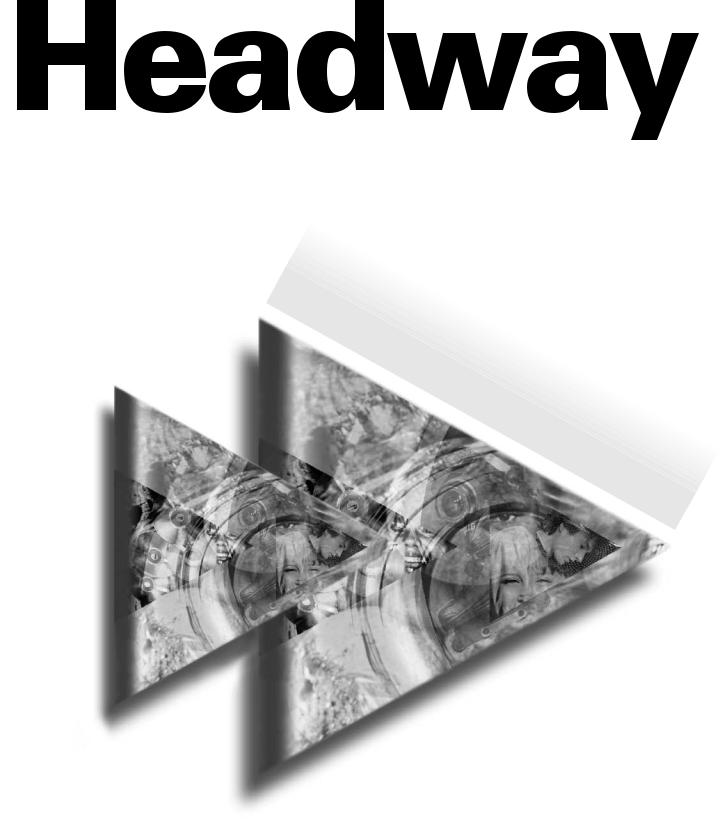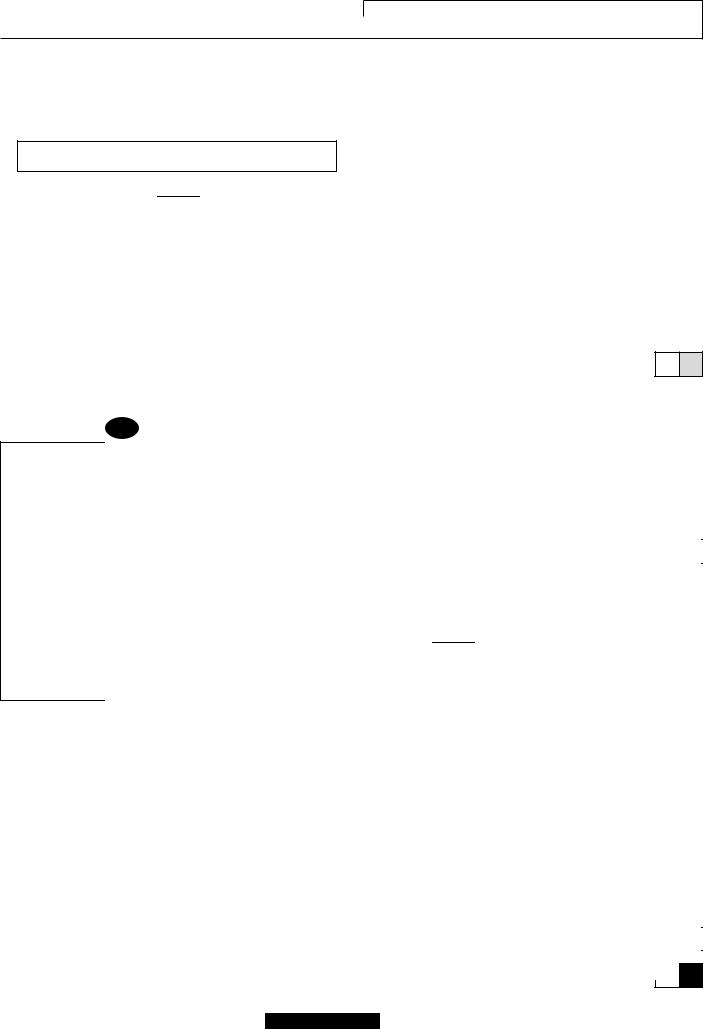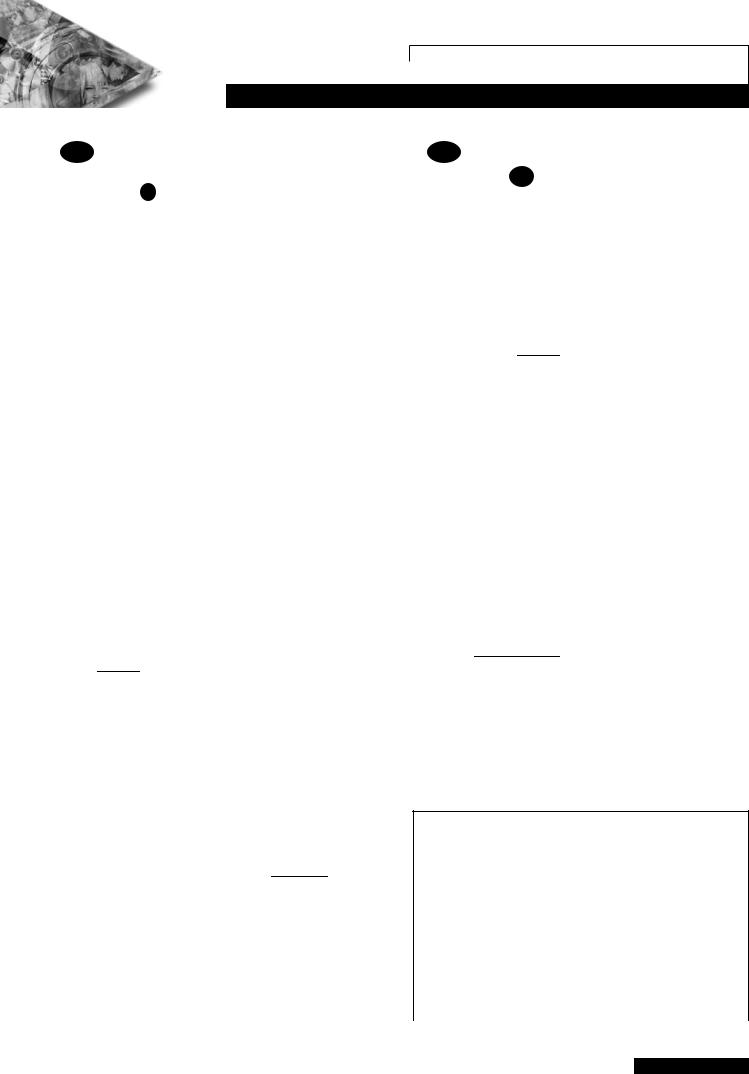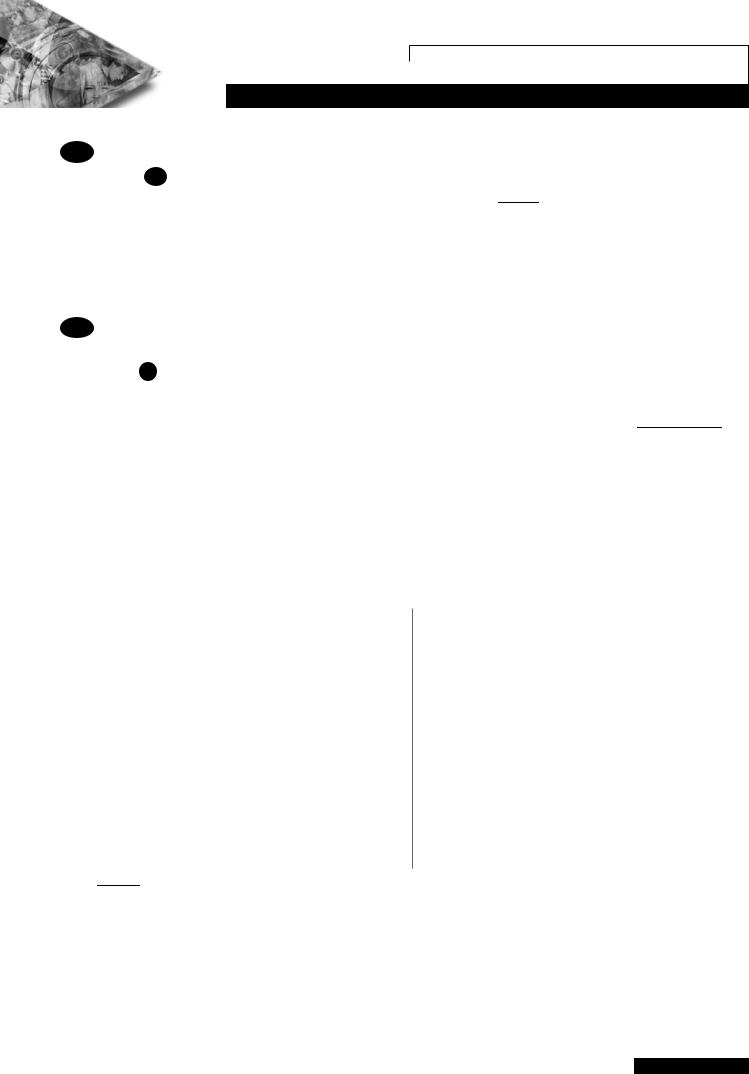
eng092_8 / 092_8- New Headway. Pre-Intermediate_Tests_Lindsay White_2nd ed_2003 -80p
.pdf
New
Pre-Intermediate Tests
|
Lindsay White |
|
N |
|
|
E |
|
|
W |
parallel |
|
|
tests |
|
|
|
|
2
1
Great Clarendon Street, Oxford OX2 6DP
Oxford University Press is a department of the University of Oxford. It furthers the University’s objective of excellence in research, scholarship, and education by publishing worldwide in
Oxford New York |
|
|
|
Auckland Bangkok |
Buenos Aires |
Cape Town |
Chennai |
Dar es Salaam Delhi |
Hong Kong |
Istanbul Karachi |
|
Kolkata Kuala Lumpur Madrid |
Melbourne |
Mexico City |
|
Mumbai Nairobi São Paulo Shanghai Taipei Tokyo
Toronto
Oxford and Oxford English are trade marks of
Oxford University Press in the UK and certain other countries © Oxford University Press 2003
The moral rights of the author have been asserted
Database right Oxford University Press (maker)
First published 2003
All rights reserved. No part of this publication may be reproduced, stored in a retrieval system, or transmitted,
in any form or by any means, without the prior permission in writing of Oxford University Press (with the sole exception of photocopying carried out under the conditions stated in the paragraph headed ‘Photocopying’), or as expressly permitted by law, or under terms agreed with the appropriate reprographics rights organization. Enquiries concerning reproduction outside the scope of the above should be sent to the ELT Rights Department, Oxford University Press, at the address above
You must not circulate this book in any other binding or cover and you must impose this same condition on any acquirer
ISBN A000131
Printed in the UK
Photocopying
The publisher grants permission for the photocopying of those pages marked ‘photocopiable’ according to the following conditions. Individual purchasers may make copies for their own use or for use by classes that they teach. School purchasers may make copies for use by staff and students, but this permission does not extend to additional schools or branches.
Under no circumstances may any part of this book be photocopied for resale.
Any websites referred to in this publication are in the public domain and their addresses are provided by Oxford University Press for information only. Oxford University Press disclaims any responsibility for the content.

New Headway Pre-Intermediate
Test Booklet
Note to the teacher
This booklet contains:
•14 Unit Tests which revise the corresponding unit in New Headway Pre-Intermediate Student’s Book. There are two versions (A and B) of each test. They cover the same material, but have been reorganized to allow easier administration of the tests in the classroom. Each test has a total score of 100.
•A Review Test (Units 1–7) and an Exit Test (Units 1–14), each with a total score of 100.
•An optional listening test at the back of the booklet for each unit, using original recordings.
•An Answer Key for all the exercises.
•Tapescripts for all the listening exercises.
There is a separate audio CD (40NEWHWTESTCD.03/GB) containing the recordings for the optional listening tests.
Track Tapescript
191 Neighbours
202 You drive me mad!
213 A news story
224 The weekend shop
235 My favourite thing
246 What’s Hong Kong like?
257 My grandparents
268 My job
279 The future of our world
2810 My life then and now
2911 The history of tea in Britain
3012 Who knows?
3113 A business trip
3214 The novelist
3315 My family
3416 An interview with Sir Harry
If you do not have the audio CD, please use the tapescripts.
These tests may be photocopied freely for classroom use. They may not be adapted, printed or sold without the permission of Oxford University Press.

1 |
|
|
|
N A M E : |
|
|
|
|
|
Test A |
|
1Circle the correct form of the verb.
1 He travels / ’s travelling a lot for his job. 2 When did you come / came to New York? 3 She can swims / swim 5 kilometres.
4 We don’t see / aren’t seeing them this evening. 5 They move in / moved in two weeks ago.
6 He’s going to marry / married her next summer. 7 I enjoy / ’m enjoying this party!
8 Where is / does your brother live now?
9 Why is the policeman talking / talk to him?
1 point for each correct answer |
|
8 |
|
|
|
2 Complete the sentences with the verbs in the box.
bought come comes |
are studying |
...Did buy |
did ... meet is staying |
went studies |
was |
|
|
|
1My mother is staying in our house while we are on holiday.
2Paul _______ French four times a week.
3Anna _______ to the cinema last weekend.
4My mother _______ from Poland.
5My brothers _______ modern languages in Paris.
6When I was ten, my parents _______ me a bicycle.
7_______ Simon _______ you a present?
8Where _______ your father born?
9Who _______ you _______ last night?
10Where does he _______ from?
1 point for each correct answer |
|
9 |
|
|
|
3Complete the paragraph with the correct form of the verbs in the box.
be be come go live not enjoy study
My name (1) is Natalia. I (2) __________ from Málaga, in the south of Spain. I (3) __________ a student at a language school in London. I (4) __________ English. I (5) __________ with an English family for three months. The course is hard work and I (6) __________ it very much. Next week, I (7) __________ home to Málaga for a holiday.
2 points for each correct answer |
|
12 |
|
|
|
4 Write the question words then match 1–8 with a–h.
1 |
What’s this in English? |
a |
It’s his. |
|
|
|
2 |
______ is your teacher? |
b |
A month ago. |
|
|
|
3 |
______ book is it? |
c |
Thirty-five pounds. |
|||
4 |
______ did you park? |
d |
The small blue one. |
|||
5 |
______ did you go on holiday? |
e |
It’s 12 o’clock. |
|
|
|
6 |
______ much were your jeans? |
f |
Marie Evans. |
|
|
|
7 |
______ bag is yours? |
g |
It’s a bicycle. |
|
|
|
8 |
______ ’s the time, please? |
h |
Near the station. |
|||
|
2 points for each correct answer |
|
|
|
||
|
|
14 |
|
|||
|
(1 per question word, 1 for matching) |
|
|
|||
|
|
|
|
|||
5Read Gino’s answers. Complete the questions.
A Hello, (1) what’s your name ?
G It’s Gino.
A (2) ____________ come from?
G I’m from Naples.
A (3) ____________ live now?
G I live in Memphis now.
A (4) ____________ move to Memphis?
G A year ago.
A (5) ____________ do?
G I’m a student. I’m studying music.
A (6) ____________ married?
G No, I’m not, but I’ve got a girlfriend.
A (7) ____________ name?
G Belinda.
A (8) ____________ Belinda do?
G She’s an architect.
1 point for each correct answer |
|
7 |
|
|
|
6 Write noun, verb, adjective, adverb, or preposition.
1 |
bread |
noun |
2 |
deliver |
______ |
3 |
hot |
______ |
4 |
never |
______ |
5 |
on |
______ |
6 |
van |
______ |
1 point for each correct answer |
|
5 |
|
|
|
4 |
U N I T 1 Test A |
New Headway Pre-Intermediate © Oxford University Press P H O T O C O P I A B L E |

N A M E :
7Complete the sentences with the words in the box. There is one extra word.
book flat mean ring train
1 The east of England is flat .
2Did the phone ______ ?
3He’s a runner and he wants to ______ for the next Olympics.
4He wears a wedding ______ .
5She wants to live in a ______ near her office.
6She’s very ______ – she never buys a drink.
7We are getting the ______ to London.
8What do you ______ ?
1 point for each correct answer |
|
7 |
|
|
|
8 Read the article. Circle the correct answer.
Some people are better communicators than others and this helps us to choose our jobs. People who work alone, for example, artists or postmen, don’t need good communication skills. Musicians communicate with the other players through their music. However, workers who speak to the public all day, for example, hotel receptionists, need to enjoy meeting and helping people.
One profession that needs good communications skills (but does not always have them) is medicine. A clever doctor may not be very good at talking to his or her patients. Some teaching hospitals now train their medical students to have a good bed-side manner. This means the medical students learn to be kind and friendly when they are talking to sick people who are frightened or unhappy.
Another profession that needs good communication skills is the police force. The police learn to look carefully at faces and bodies so they can ‘read’ if a person is dangerous or not telling the truth.
1All / Some people are good communicators.
2A good receptionist likes working in a hotel / meeting people.
3Most / Some doctors are bad communicators.
4Doctors can’t / can learn to communicate with ordinary people.
5A ‘good bed-side manner’ means you can talk about science / kindly to patients.
6Medical students are student doctors / sick students.
7Patients are dangerous / sick people.
8You can’t / can learn to read body language.
2 points for each correct answer |
16 |
|
|
9 Complete the table with information about you.
where/live? |
____________________ |
who/live with? |
____________________ |
what/do? |
____________________ |
hobbies |
____________________ |
why/learning English? |
____________________ |
|
|
Use your notes to write an informal letter to a new penfriend. Write your address and the date. Start:
Dear Hans,
I’m very pleased that we are ...
10 points divided between accuracy and content
12
+ 2 for layout and salutations
10Translate the social expressions.
1 Make yourself at home. ____________
2 Pleased to meet you. ____________
3 See you tomorrow. ____________
4 Sleep well. ____________
5 That’s very kind. ____________
1 point for each correct answer |
5 |
|
|
11 Complete the short conversations.
Conversation 1
A (1) Hello , Jack!
B Hi, Suzy!
Conversation 2
A(2) Ex______ m______ .
BYes. (3) Ca______ I he______ y______ ?
Conversation 3
AHow are you?
B(4) I______ f______ , th______ .
Conversation 4
AHave a good holiday!
B(5) Sa______ t______ you!
Conversation 5
A(6) S______ you to______ !
BBye!
1 point for each correct answer |
5 |
|
|
TOTAL 100
New Headway Pre-Intermediate © Oxford University Press P H O T O C O P I A B L E |
Test A U N I T 1 |
5 |

1Test B
1 Write the question words then match 1–8 with a–h.
1 What ’s this in English? g
2 ______ ’s the time, please? __
3 ______ did you go on holiday? __
4 ______ much were your shoes? __
5 ______ did you stay? __
6 ______ car is yours? __
7 ______ coat is this? __
8 ______ is your boss? __
a |
It’s his. |
e |
It’s 3 o’clock. |
|
|
b |
A month ago. |
f |
Marie Evans. |
|
|
c |
Thirty-five pounds. |
g |
It’s a bicycle. |
|
|
d |
The 4-door Mercedes. |
h |
Near the station. |
|
|
|
2 points for each correct answer |
|
|
||
|
|
14 |
|||
|
(1 per question word, 1 for matching) |
|
|||
|
|
|
|||
2 Circle the correct form of the verb.
1He travels / ’s travelling a lot for his job.
2He can swims / swim 10 kilometres.
3We don’t see / aren’t seeing them this weekend.
4I move in / moved in two weeks ago.
5When did they come / came to Paris?
6She’s going to marry / married him next May.
7I enjoy / ’m enjoying this meal!
8Why is he talking / talk to the policeman?
9Where is / does your uncle work now?
1 point for each correct answer |
|
8 |
|
|
|
3Complete the paragraph with the correct form of the verbs in the box.
be be |
come |
go live enjoy study |
|
|
|
|
|
My name (1) |
is |
Natalia. I (2) _________ from Koszalin, in the |
|
north of Poland. I (3) _________ with an English family for three |
|||
months. I (4) _________ a student at a language school in London. I
(5) _________ English. The course is hard and I (6) _________ it very much. Next week, I (7) _________ home to Koszalin for a holiday.
2 points for each correct answer |
|
12 |
|
|
|
N A M E :
4 Complete the sentences with the verbs in the box.
bought come comes |
are studying |
Did ... buy |
|
|
did ... meet |
is staying |
went studies |
was |
|
|
|
|
|
|
1 My mother |
is staying |
in our house while we are on |
||
holiday. |
|
|
|
|
2My sisters ________ modern languages in New York.
3When I was eighteen, my parents ________ me a car.
4______ your father ______ you a present?
5Colleen ________ Spanish twice a week.
6My parents ________ to the cinema last weekend.
7Anna ________ from Poland.
8Who ______ you ______ last night?
9Where does he ________ from?
10Where ________ Simon born?
1 point for each correct answer |
|
9 |
|
|
|
5 Read Gina’s answers. Complete the questions.
A Hello, (1) what’s your name ? |
|
||
G It’s Gina. |
|
||
A (2) _____________ come from? |
|
||
G I’m from Tuscany. |
|
||
A (3) _____________ live now? |
|
||
G I live in Sydney now. |
|
||
A (4) _____________ move to Sydney? |
|
||
G |
2 years ago. |
|
|
A (5) _____________ do? |
|
||
G I’m an architect. I’m working in the city. |
|
||
A (6) _____________ married? |
|
||
G No, I’m not but I’ve got a boyfriend. |
|
||
A (7) _____________ name? |
|
||
G Mario. |
|
||
A (8) _____________ Mario do? |
|
||
G He’s a student. |
|
||
|
1 point for each correct answer |
|
|
|
|
7 |
|
|
|
|
|
6 |
U N I T 1 Test B |
New Headway Pre-Intermediate © Oxford University Press P H O T O C O P I A B L E |

N A M E :
6Complete the sentences with the words in the box. There is one extra word.
book flat mean ring train
1 The east of England is flat .
2He’s a swimmer and he wants to ______ for the next Olympics.
3Did the telephone ______ ?
4What does it ______ ?
5He’s very ______ – he never buys a drink.
6She wears a gold ______ .
7They want to live in a ______ near the centre.
8Joe is getting the ______ to Glasgow.
1 point for each correct answer |
|
7 |
|
|
|
7 Write noun, verb, adjective, adverb, or preposition.
1 |
bread |
noun |
4 |
hot |
__________ |
|
||
2 |
van |
__________ |
5 |
deliver __________ |
|
|||
3 |
never __________ |
6 |
on |
__________ |
|
|||
|
|
|
|
|
|
|
||
|
|
|
1 point for each correct answer |
|
|
5 |
||
|
|
|
|
|
|
|
|
|
8 Read the article. Circle the correct answers.
Some people are better communicators than others and this helps us to choose our jobs. People who work alone, for example, artists or postmen, don’t need good communication skills. Musicians communicate with the other players through their music. However, workers who speak to the public all day, for example, hotel receptionists, need to enjoy meeting and helping people.
One profession that needs good communications skills (but does not always have them) is medicine. A clever doctor may not be very good at talking to his or her patients. Some teaching hospitals now train their medical students to have a good bed-side manner. This means the medical students learn to be kind and friendly when they are talking to sick people who are frightened or unhappy.
Another profession that needs good communication skills is the police force. The police learn to look carefully at faces and bodies so they can ‘read’ if a person is dangerous or not telling the truth.
1Some / All people are good communicators.
2A good receptionist likes meeting people / working in a hotel.
3Some / Most doctors are bad communicators.
4Doctors can / can’t learn to communicate with ordinary people.
5A ‘good bed-side manner’ means talk kindly to patients / about science.
6Medical students are sick students / student doctors.
7Patients are sick / dangerous people.
8You can / can’t learn to read body language.
2 points for each correct answer |
|
16 |
|
|
|
9 Complete the table with information about you.
where/live? |
____________________________ |
who/live with? |
____________________________ |
what/do? |
____________________________ |
hobbies |
____________________________ |
why/learning English? |
____________________________ |
|
|
Use your notes to write an informal letter to a new penfriend. Write your address and the date. Start:
Dear Hans,
I’m very pleased that we are ...
10 points divided between accuracy and content
12
+ 2 for layout and salutations
10 Complete the short conversations.
1 A (1) He llo |
, Jack! |
B Hi, Suzy!
2A Have a good holiday!
B (2) Sa______ t______ you!
3A (3) S______ you to______ !
B Bye!
4A (4) Ex______ m______.
B Yes. (5) Ca______ I he______ y______ ?
5A How are you?
B (6) I______ f______ , th______ .
1 point for each correct answer |
|
5 |
|
|
|
11 Translate the social expressions.
1 |
Make yourself at home. ____________ |
|
||
2 |
Sleep well. |
____________ |
|
|
3 |
That’s very kind. |
____________ |
|
|
4 |
Pleased to meet you. |
____________ |
|
|
5 |
See you tomorrow. |
____________ |
|
|
|
|
|
|
|
|
|
1 point for each correct answer |
|
5 |
|
|
|
|
|
|
|
|
|
|
|
|
TOTAL |
|
100 |
|
|
|
|
|
New Headway Pre-Intermediate © Oxford University Press P H O T O C O P I A B L E |
Test B U N I T 1 |
7 |

2Test A
1 Circle the correct letter.
1 We … two computers.
|
a has got b ’ve got |
c don’t have got |
|
|
||||||
2 |
She is sick so she … this week. |
|
|
|
|
|||||
|
a isn’t working |
b doesn’t work |
c is working |
|||||||
3 |
It’s very hot today. Why … you … a coat? |
|
|
|||||||
|
a do … wear |
b are … wearing |
c don’t … wear |
|||||||
4 |
Lydia … with her mum and two children. |
|
|
|||||||
|
a lives |
b live |
c is living |
|
|
|
|
|||
5 |
In Latin America, the north … hotter than the south. |
|||||||||
|
a be |
b is being c is |
|
|
|
|
|
|||
6 |
Do you … a bicycle? |
a have |
b have got |
c ’ve |
||||||
7 |
Vegetarians … meat. |
|
|
|
|
|
|
|||
|
a are eating |
b eats |
c don’t eat |
|
|
|
||||
8 |
Are you going home? |
|
|
|
|
|
|
|||
|
a Yes, I’m. |
b Yes, I am. |
c Yes, going. |
|
|
|||||
9 |
Australia … a big population. |
|
|
|
|
|||||
|
a have not |
b doesn’t have |
c haven’t got |
|
|
|||||
10 |
Does he smoke? |
|
|
|
|
|
|
|||
|
a No, he does. |
b Yes, do. |
c Yes, he does. |
|
|
|||||
11 |
He can’t come to the phone, he … a shower. |
|
|
|||||||
|
a has |
b ’s having |
c hasn’t got |
|
|
|
||||
|
|
|
|
|
|
|||||
|
|
|
|
1 point for each correct answer |
|
10 |
||||
|
|
|
|
|
|
|
|
|
|
|
2Complete the sentences with the Present Simple or Present Continuous form of drive, wear, or have.
1 He drives to work every morning.
2He never ______ a jacket and tie.
3She ______ to work today because she is late.
4They ______ their best clothes today.
5No, you can’t go out. We ______ lunch soon.
6They ______ four children.
1 point for each correct answer |
|
5 |
|
|
|
3 Complete the short answers.
1 Have you got a holiday home? No, .
2Do they like skiing? Yes, ____________ .
3Does she have a summer holiday? No, ____________ .
4Is he tidy? Yes, ____________ .
5Are you going? Yes, I ____________ .
6Are they working today? No, ____________ .
1 point for each correct answer |
|
5 |
|
|
|
N A M E :
4 Circle the correct form.
1He has got / has coffee in the morning.
2When do you have / have got your holiday?
3Did you have got / have a nice teacher at school?
4They have never got / never have wine with dinner.
5They don’t have / no have lots of money.
1 point for each correct answer |
|
4 |
|
|
|
5 Complete the paragraph with the correct form of the verbs.
Iceland (1 have) has quite a small population. The people (2 be) ______ mainly of European descent. In the winter, it (3 be) ______ dark for nearly 24 hours a day so the people (4 not go) ______ outside much. However, in the summer, the people like (5 spend) ______ a lot of time outside so they can (6 enjoy) ______ the sunlight.
A lot of tourists (7 go) ______ to Iceland to see the unusual countryside. They can (8 swim) ______ in the naturally hot water and (9 watch) ______ the wildlife, including puffins and whales.
2 points for each correct answer |
|
16 |
|
|
|
6 Match the nouns with verbs 1–10 to make phrases.
|
my hair |
make-up a shower |
a magazine |
to the toilet |
|||
|
on the sofa the washing-up |
to my friends |
a meal |
coffee |
|||
|
|
|
|
|
|||
1 |
cook |
a meal |
6 |
put on ____________ |
|||
2 |
do ____________ |
7 |
read ____________ |
||||
3 |
go ____________ |
8 |
relax ____________ |
||||
4 |
have ____________` |
9 |
talk ____________ |
||||
|
|
|
|||||
5 |
make ____________ |
10 |
wash ____________ |
||||
|
|
|
|||||
|
|
|
|
|
|||
|
|
1 point for each correct answer |
|
9 |
|||
|
|
|
|
|
|
|
|
7 Read the text. Are the sentences true (T) or false (F)?
Jake and Gaby are Americans. They moved from Ohio to London five years ago. Jake works for a bank and Gaby is a nurse at a big hospital in the city.
When asked why they moved to London, Jake says, ‘Gaby got a job and I followed her. I didn’t work for the first three months – I was looking for a flat to buy and looking after things at home. I started my job the day after we moved to this flat. Of course we speak the language but we had some problems at first. Just small things like the different words for food – and the different British accents can be difficult to understand.’
What do they like best? Gaby speaks for both of them, ‘We love London, there’s always something interesting to do. The parks,
8 |
U N I T 2 Test A |
|
|
New Headway Pre-Intermediate © Oxford University Press P H O T O C O P I A B L E |
|||

N A M E :
museums, and theatres are great. We like to go walking in the country at the weekends so we drive to Essex early on Sunday morning and walk all day. We’re never going to live in Ohio again, we’d miss London too much.’
1Gaby and Jake are an English couple in America. __
2Gaby and Jake work in London. __
3Gaby and Jake work together. __
4They moved to London because Jake got a job. __
5British and American food words are the same. __
6Jake thinks London is boring. __
7They like going to the countryside at weekends. __
8They want to go home to Ohio. __
2 points for each correct answer |
|
16 |
|
|
|
8 Join the pairs of sentences with but/however, so, or because.
1I like cars. I don’t like driving.
I like cars, but I don’t like driving.
2She telephoned me. I went to see her.
___________________________________________
3I went shopping. We didn’t have any food.
___________________________________________
4He is moving to the USA. He is starting a new job.
___________________________________________
5We can ski. We don’t like snow and cold weather!
___________________________________________
6I am sociable. My brother is quiet.
___________________________________________
|
1 point for each correct answer |
|
|
5 |
||
9 Complete the information about you and a friend. |
|
|
|
|||
|
|
|
||||
|
|
|
|
|||
|
|
you |
|
friend |
||
|
|
|
|
|
||
|
Are you married? |
______ |
|
______ |
||
|
What’s your job? |
______ |
|
______ |
||
|
What do you like doing? |
______ |
|
______ |
||
|
What do you look like? |
______ |
|
______ |
||
|
Where do you live? |
______ |
|
______ |
||
|
Where do you go on holiday? |
______ |
|
______ |
||
|
What are you doing at the moment? |
______ |
|
______ |
||
|
|
|
|
|
|
|
Use the information to write a paragraph. Use but, so, and because.
14 points divided between content and accuracy |
|
14 |
|
|
|
10 Read 1–6 and match them with a reply and a comment.
1 What do you do? 9 f
2It’s raining again. __ __
3What do you like doing at the weekends? __ __
4Where did you go for your holiday last summer? __ __
5I like your haircut. __ __
6Did you see the film on TV last night? __ __
REPLY
7We went to Sicily.
8Thank you.
9I’m a teacher.
10No, I didn’t.
11Yes, it’s horrible isn’t it?
12I usually go to the cinema and have dinner with friends.
COMMENT
aWould you like to come with us next time?
bWas it good?
cMakes you miserable, doesn’t it?
dIt’s a beautiful place – do you know it?
eI tried that new place in town.
fI teach maths and science in a secondary school. What about you?
2 points for each correct answer |
|
10 |
|
|
|
11 Read the questions. Write true answers and add a comment.
1 Do you like learning English?
Yes, I do. I want to study in England when I go to university.
2What are you doing after this lesson?
I __________________________________________
3What did you do last weekend?
I __________________________________________
4How are you today?
I __________________________________________
2 points for each correct answer |
|
6 |
|
|
|
TOTAL 100
New Headway Pre-Intermediate © Oxford University Press P H O T O C O P I A B L E |
Test A U N I T 2 |
9 |

2Test B
1 Circle the correct form of the verb.
1 He has got / has coffee in the morning.
2 When do you have / have got your holiday? 3 Did you have / have got a nice class at school?
4 They have never got / never have wine with dinner. 5 They don’t have / no have lots of friends.
|
|
|
|
1 point for each correct answer |
4 |
||||
2 Circle the correct letter. |
|
|
|
|
|
||||
|
|
|
|
|
|||||
1 |
We … two computers. |
|
|
|
|
|
|||
|
a has got b ’ve got |
c don’t have got |
|
||||||
2 |
She … this week because she is sick. |
|
|||||||
|
a doesn’t work |
b isn’t working |
c is working |
|
|||||
3 |
It’s very cold today. Why … you only… a T-shirt? |
|
|||||||
|
a are … wearing |
b do … wear |
c don’t … wear |
||||||
4 |
Joseph … with his wife and children. |
|
|||||||
|
a lives |
b live |
c is living |
|
|
|
|
||
5 |
In Latin America, the south … hotter than the north. |
||||||||
|
a isn’t |
b isn’t being |
c not be |
|
|
|
|||
6 |
Do you … a camera? |
|
|
|
|
|
|||
|
a have |
b have got |
c ’ve |
|
|
|
|
||
7 |
Vegetarians … meat. |
|
|
|
|
|
|||
|
a are eating |
b eats |
c don’t eat |
|
|
|
|||
8 |
Are you going out tonight? |
|
|
|
|
||||
|
a Yes, I am. |
b Yes, going. |
c Yes, I’m. |
|
|||||
9 |
Australia … a big population. |
|
|
|
|||||
|
a don’t have |
b have not |
c hasn’t got |
|
|||||
10 |
Does he smoke? |
|
|
|
|
|
|
||
|
a No, he does. |
b Yes, do. |
c Yes, he does. |
|
|||||
11 |
He … a shower, he can’t come to the phone. |
|
|||||||
|
a ’s having |
b hasn’t got |
c has |
|
|
|
|||
|
|
|
|
|
|
|
|||
|
|
|
|
1 point for each correct answer |
|
10 |
|||
|
|
|
|
|
|
|
|
|
|
3Complete the sentences with the Present Simple or Present Continuous form of have, drive, or wear.
1 He drives to work every morning.
2We ______ dinner soon so, you can’t go out.
3They ______ a black cat.
4She ______ to work today because she is late.
5He ______ his school uniform today.
6Her son never ______ his coat.
1 point for each correct answer |
|
5 |
|
|
|
N A M E :
4Complete the paragraph with the correct form of the verbs in brackets.
Iceland (1 have) has quite a small population. The people (2 be)
_______ mainly of European descent. In the summer, the people like (3 spend) _______ a lot of time outside so they can (4 enjoy) _______
the sunlight. However, in the winter it (5 be) _______ dark for nearly 24 hours a day so the people (6 not go) _______ outside much.
Lots of visitors (7 go) _______ to Iceland’s unusual countryside. They can (8 watch) _______ the wildlife including puffins and whales, and (9 swim) _______ in the naturally hot water.
|
|
|
2 points for each correct answer |
16 |
|
|
|
|
5 Complete the short answers.
1 Have you got a holiday home? No, .
2Is she working today? No, ____________ .
3Do they like skiing? Yes, ____________ .
4Are you tidy? Yes, I ____________ .
5Do they have a summer holiday? No, ____________ .
6Is he going? Yes, ____________ .
1 point for each correct answer |
5 |
|
|
|
|
|
|
6 Read the text. Are the sentences true (T) or false (F)?
Jake and Gaby are Americans. They moved from Ohio to London five years ago. Jake works for a bank and Gaby is a nurse at a big hospital in the city.
What do they like best? Gaby speaks for both of them, ‘We love London, there’s always something interesting to do. The parks, museums, and theatres are great. We like to go walking in the country at the weekends so we drive to Essex early on Sunday morning and walk all day. We’re never going to live in Ohio again, we’d miss London too much.’
When asked why they moved to London, Jake says, ‘Gaby got a job and I followed her. I didn’t work for the first three months – I was looking for a flat to buy and looking after things at home. I started my job the day after we moved to this flat. Of course we speak the language but we had some problems at first. Just small things like the different words for food – and the different British accents can be difficult to understand.’
1 |
Gaby and Jake are an English couple in America. __ |
|
2 |
Jake thinks London is boring. |
__ |
3 |
They like going to the countryside at weekends. |
__ |
4 |
They want to go home to Ohio. |
__ |
5 |
Gaby and Jake work in London. |
__ |
6 |
Gaby and Jake work together. |
__ |
10 U N I T 2 Test B |
New Headway Pre-Intermediate © Oxford University Press P H O T O C O P I A B L E |
